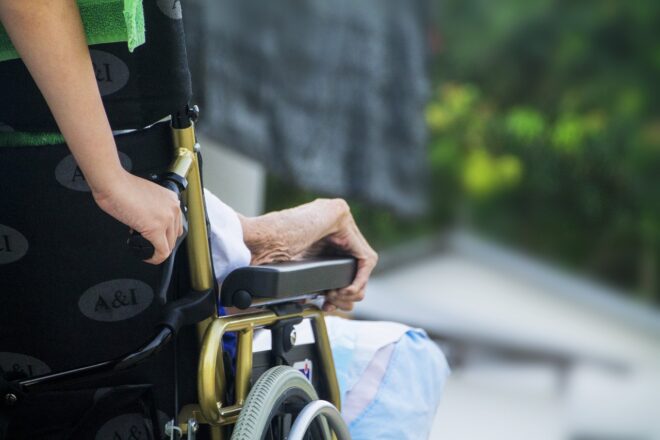As you navigate the challenging journey of supporting a loved one towards the end of life, Crossroads Hospice & Palliative Care is here to be your guide, assisting in understanding the variety of physical, emotional, and spiritual changes that occur. Equipping you with knowledge on signs such as coolness in extremities, increased sleep, incontinence, restlessness, decreased appetite, and changes in breathing patterns, they help you define these notable changes.
They also explore the different emotional and spiritual stages like the giving away of belongings, communication, and saying goodbye. Unique resources tailor-made for distinct diseases like cancer, dementia, and kidney failure pave the way on this path and help prepare you for the most delicate moments, including the dying process of a parent or changes in blood pressure and breathing patterns just before death. At the heart of it all, your comfort and understanding is their mission.

Understanding Crossroads Hospice & Palliative Care
Crossroads Hospice & Palliative Care is an esteemed institution dedicated to providing end-of-life care for patients around the globe. Over the years, this organization has become a beacon of hope, offering unsurpassed services to patients and their families during taxing times.
History and Overview of Crossroads Hospice & Palliative Care
Since its inception, Crossroads Hospice & Palliative Care has taken the lead in providing guidance for family caregivers to help them comprehend the physical, emotional, and spiritual end-of-life changes. With keen sensitivity and ample compassion, they have cared for thousands, creating a space of support during this challenging stage.
Services Offered by Crossroads Hospice & Palliative Care
Crossroads Hospice & Palliative Care extends numerous crucial service offerings. This includes providing supportive guidance on recognizing end-of-life signs across different diseases like cancer, dementia, kidney failure, lung cancer. The diverse range of their services also contains emotional and palliative care for patients and families, effective pain management, and holistic care for a comfortable journey towards life’s end.
Physical Changes at End-of-life
the final stage of life is accompanied by various physical changes that are important for you to understand, allowing better care for your loved ones on their end-of-life journey.
Typical Physical Changes Experienced
Several physical changes can signal the final phases of life. These changes serve as cues for end-of-life care and include coolness in hands, arms, feet, and legs, along with noticeable confusion, increased sleep, incontinence, and restlessness.
Observing Changes in Temperature
One of the pervasive end-of-life signs includes changes in body temperature. This change generally manifests in the form of coolness in the hands, arms, feet, and legs of the dying person.
Increased Sleep and Incontinence
One of the early signs that the end-of-life process has begun is increased sleep and incontinence. As the body slows down, the need for sleep increases. Incontinence can also be a profound sign of life approaching its end.
Recognizing Restlessness and Congestion
Restlessness and congestion are other vital signs that suggest that the end-of-life phase has begun. As the person nears death, they may show signs of restlessness and experience breathing difficulties due to congestion.
Understanding Changes in Body Functions such as Urine and Food Intake
To adequately care for your loved ones, it is critical to understand changes in their bodily functions like urine output and food intake. A decrease in these functions often indicates their bodies are preparing for the final journey.
Comprehending Emotional and Spiritual End-of-Life Signs
Alongside the physical changes, emotional and spiritual signs play a crucial role in the end-of-life journey.
Common Emotional Signs
Some common emotional signs include giving away belongings, withdrawal from social interactions, and displaying unusual restlessness. Understanding these can provide considerable comfort and guidance to the caregivers.
Identifying Spiritual Signs
The spiritual signs in end-of-life stages may include vision-like experiences, and an evident desire for deep, meaningful conversations about life and death.
Distinguishing Changes in Personal Behavior
It’s important to watch for any changes in personal behavior. This could include seeking closure, completing unfinished business or attempting to mend strained relationships.
Communicating and Saying Goodbye
In the last phase of life, many people feel a strong desire to say goodbye to their loved ones. This can be a significant emotional and spiritual sign that end-of-life is imminent.
Timeline of End-of-Life Changes
End-of-life changes typically occur in stages over a timeline providing cues about approaching life’s end.
Stages of the End-of-Life Process
The end-of-life process generally occurs in stages, each exhibiting identifiable signs. Your understanding of these stages is essential to provide the requisite care and support.
Identifying the Decrease in Appetite and Increase in Sleep
The decreased appetite and increased sleep usually occur one to three months before death. These can majorly contribute towards identifying the stage of the end-of-life process.
Spotting Confusion and Restlessness
The presence of confusion and restlessness are usually seen one to two weeks before death. It’s essential to identify these signs to arrange for the necessary care.
Understanding Breathing Changes Prior to Passing
Gasping breathing occurring minutes before death indicate that life is nearing its end.

Unpredictability of Death
Death is an inherently unpredictable phenomenon. Despite the signs, it’s often difficult to pinpoint exactly when the end may come.
Understanding the Unpredictability of Death
Completely understanding the unpredictability of death helps in preparing for end-of-life changes. Death can occur hours or days after these symptoms onset, making it uncertain and unpredictable.
Recognizing the Transition from Life to Death
Recognizing the transition from life to death can be an insightful journey. This transition is usually accompanied by unique signs including changes in breathing, body temperature, and consciousness.
Coping with the Unpredictability of End-of-Life
Coping with the unpredictability of end-of-life is a challenging task. It requires the capacity to manage emotional turmoil while staying open to the fluidity and unpredictability of the process.
Support for Family by Crossroads Hospice & Palliative Care
Medical support for patients is only one aspect; emotional and psychological support for family members is equally pressing during these times.
Types of Support Provided
Crossroads Hospice & Palliative Care offers extensive support, accommodating both physical and emotional needs of the patients and their families.
Care for Different Diseases
Crossroads Hospice & Palliative Care also extend disease-specific advice and support for conditions like cancer, dementia, and lung disease.
Guidance for Recognizing End-of-Life Signs
The team at Crossroads Hospice & Palliative Care is adept in providing guidance to families on observing and interpreting end-of-life signs.

End-of-Life Resources
Crossroads Hospice & Palliative Care possesses a range of resources designed to help caregivers prepare for end-of-life situations.
Types of Resources Provided
Resources offered by Crossroads Hospice & Palliative Care include comprehensive guides on a range of pertinent topics such as preparing for the death of a parent and understanding physiological changes like blood pressure and breathing patterns before death.
Preparation Tips for the Death of a Loved One
Crossroads Hospice & Palliative Care provides valuable tips on how to emotionally, physically, and practically prepare for the death of a loved one.
Understanding Vital Signs like Blood Pressure Before Death
Another valuable resource provided by the organization is guidance on understanding vital signs like blood pressure before death.
Recognizing Breathing Patterns Before Death
Recognizing breathing patterns can indeed be an important resource. Crossroads Hospice & Palliative Care provides crucial wisdom on identifying these patterns.
Significance of Crossroads Hospice & Palliative Care
The significance of Crossroads Hospice & Palliative Care is considerable, especially during the trying times of end-of-life care.
Role in Family Caregivers’ Lives
Crossroads Hospice & Palliative Care plays a central role in family caregivers’ life during this grave stage. They provide comfort, intermediation, expert advice, and emotional support during this challenging journey.
Impact on End-of-Life Journey
The impact of Crossroads Hospice & Palliative Care on the end-of-life journey is immense. Their actions help ensure family caregivers and patients navigate through this passage in a more bearable fashion.
Help Provided during the Difficult Time
Crossroads Hospice & Palliative Care acts as a rock for family caregivers and patients during this difficult time, helping to carry the emotional and physical burden of end-of-life care.
End-of-Life Changes in Different Diseases
End-of-life changes and symptoms can vary widely based on the specific disease the patient is dealing with.
Changes in Patients with Cancer
Cancer patients may exhibit unique end-of-life signs such as pain, fatigue, appetite changes, and breathing difficulties.
Recognizing End-of-Life Signs in Dementia Patients
In dementia, signs like memory loss, confusion and agitation may increase. Recognizing these can contribute to providing better care.
Symptoms in Patients with Lung Cancer
Lung cancer patients may exhibit signs of labored breathing, cough, and discomfort. Understanding these signs can guide the care needed for such patients.
Understanding Signs in Patients with Kidney Failure
In patients suffering from kidney failure, unique symptoms like decreased urine output, swelling, and fatigue can denote end-of-life.
Dealing with End-of-Life Changes
End-of-life changes can be hard to navigate. A sound understanding and well-formed coping strategies can help you through this phase.
Coping Strategies for Family Caregivers
Life’s final phase can be emotionally overwhelming hence employing adequate coping strategies is crucial. These can include gaining knowledge, seeking social support, and maintaining self-care.
Understanding and Accepting End-of-Life Changes
Understanding and accepting end-of-life changes can provide increased peace and decreased anxiety for both the patient and caregivers.
Emotional Support during End-of-Life
The importance of emotional support during end-of-life is immense. It provides significant comfort to patients and helps caregivers to deal with the transition. Seeking professional help can make this phase easier.
